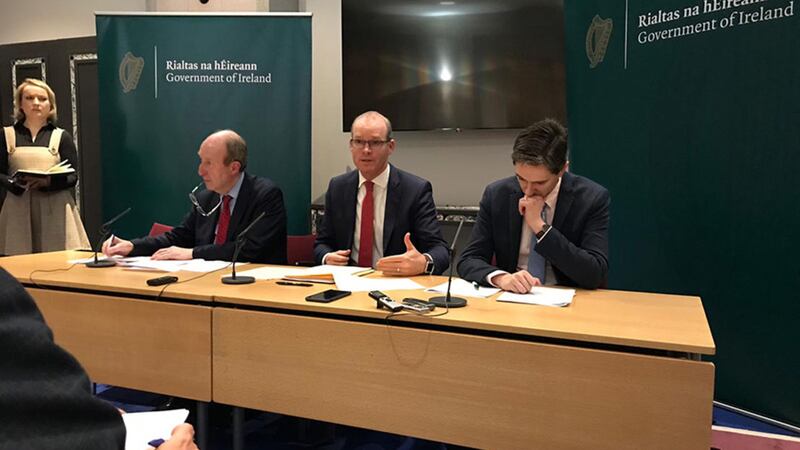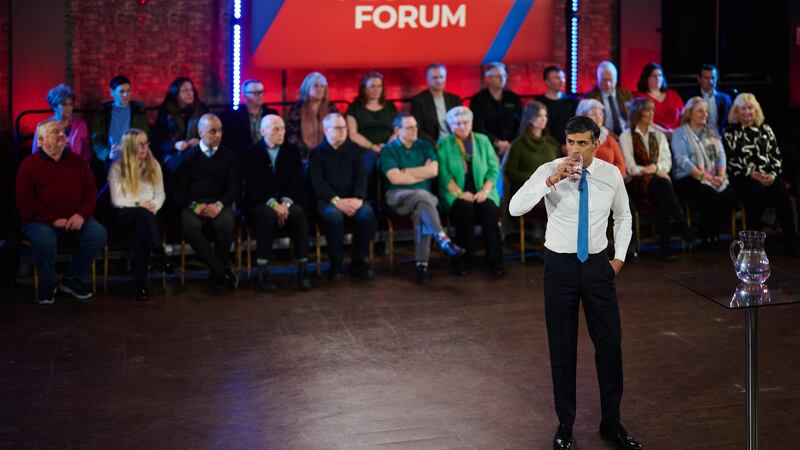The Dublin government said the result of the vote in Westminster increases the risk of a disorderly Brexit.
British Prime Minister Theresa May's Brexit plans were rejected by 432 votes to 202 by the House of Commons.
Reacting to the result, the Dublin government said the outcome adds to the uncertainty "about the nature" of the UK leaving the European Union and urged the British government to set out how it plans to move forward.
In a statement, it said: "The Irish government continues to believe that ratification of this Agreement is the best way to ensure an orderly withdrawal of the UK, which avoids a hard border and respects the single market and Customs Union, while also delivering on the UK's objectives for withdrawal.
Read More:
- Mixed reaction to Brexit vote defeat from Northern Ireland politicians
- Sinn Féin urges Leo Varadkar to 'stand firm' after Westminster rejects Brexit deal
- Arlene Foster says UK Parliament right to reject Brexit deal
"Regrettably, the outcome of tonight's vote increases the risk of a disorderly Brexit.
"Consequently, the government will continue to intensify preparations for such an outcome.
"Earlier today, Cabinet discussed preparation for a no-deal Brexit in detail.
"Cabinet took a number of significant decisions, including the preparation of essential legislative measures as part of this ongoing work.
"This work which will intensify over the next few weeks."
The statement added that it was "not too late" to avoid a disorderly Brexit and called for the UK to set out how it will resolve the impasse "as a matter of urgency".
Tánaiste and Foreign Affairs Minister Simon Coveney said they were not "hugely surprised by the result".
"I think the predictions were consistent enough over the last few days that this would be a heavy defeat and so we now need to be patient and calm to allow this process in Westminster to take its course," he added.
Micheál Martin, the leader of Fianna Fáil said every effort should be made to ensure the country was prepared for all outcomes.
Mr Martin said: "We could be potentially looking at an extension of Article 50.
"I think what we can do though, what we control here is our preparations.
"And to keep calm, but steady here but also ensure that no stone is left unturned in terms of what has to be done to prepare for all scenarios."
Labour party leader Brendan Howlin said he believed it was now more likely that a second referendum would be held rather than any other conclusion.
It was announced earlier today that the Dublin government agreed to group all Brexit legislation into one omnibus Bill as part of its contingency plans for a no-deal Brexit.
The Chief Whip Sean Kyne said it was "one of the most extensive bills to be considered by the Oireachtas".
He said it comprises "vital legislation across 17 elements that will need to be enacted prior to Brexit in the event of a no-deal Brexit".
"While the possibility of introducing a number of Brexit-related bills was considered, we believe a single, standalone bill - that contains a number of parts - is the most efficient and effective way of preparing for Brexit," he said.
"The bill will focus on areas including healthcare, transport, social welfare and employment - as well as specific all island issues such as public transport and energy.
"It represents months of work by officials from across government and, in particular, from the Department of Taoiseach and the Department of Foreign Affairs and Trade.
"In addition, many of the provisions will be provided for through statutory instruments that will be ready for signing should they be required in the event of a no-deal Brexit."
Mr Kyne also revealed that he believes it is likely that the Dáil will be required to hold additional sittings in March.
"Senior officials from the Department of Taoiseach and I will work with the Dáil Business Committee and with the various parties and groups in the Dáil to ensure the passage of this substantial legislation ahead of Brexit," he said.
While Brexit is dominating the spring programme, Mr Kyne said work will continue on other legislation, including constitutional amendment bills to facilitate referenda including a referendum on extending the right to vote in presidential elections to Irish citizens abroad and the referendum to change the law regarding divorce.








